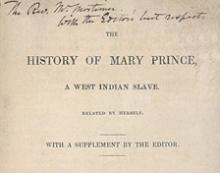Browse
Modern (1800 CE - 1950 CE)

Review
Africa Focus: Sights and Sounds of a Continent
By using the search filters effectively, teachers can have students compare and contrast various images of worship, schooling, work, and landscapes to highlight the vast cultural and ecological diversity of Africa.
Review
Swaziland Digital Archives
Featuring approximately 600 photographs chronicling daily life and politics in Swaziland, the Swaziland Digital Archives provides visual insights into the experiences of childhood and adolescence in southern Africa over the past century.
Review
Gifts of Speech: Women's Speeches from Around the World
This site offers an archive of speeches by “influential, contemporary women.” Almost all of the speeches in the collection come directly from the authors themselves or from the organizations representing them and have not been published elsewhere.
Review
Project Wittenberg
It contains the largest online collection of Luther’s writings in English, including more than 100 hymns, as well as writings about Luther by many of his contemporaries and later Lutheran scholars.
Teaching
Short Teaching Module: Slavery, Labor, and Gender
In this case study, developed for a lower-division lecture class on “World History 1400-1870,” students explore gender though a primary source the personal account, “The History of Mary Prince, A West Indian Slave Related by Herself.” This first-person account was written by British abolitionists

Source
People under the Old Regime
This image shows "the people" as a chained and blindfolded man being crushed under the weight of the rich, including both clergy and nobility.
Source
The Traditional Order Defended
This newspaper article considers the question of equality from the opposite point of view—arguing that without social distinctions making clear who should lead and who should follow, society cannot hold together.

Review
Sejarah Melayu: The History of the Malay Peninsula
Internet resources dealing with Malaysian history are difficult to locate. Although this site has some shortcomings, it remains one of the most accessible sources for such information.
Review
Viettouch
Some of the sections under the “Literature” and “History” categories are largely written in Vietnamese and may, therefore, be inaccessible to students. However, the vast majority of the site is in English and well worth a careful read.
Review